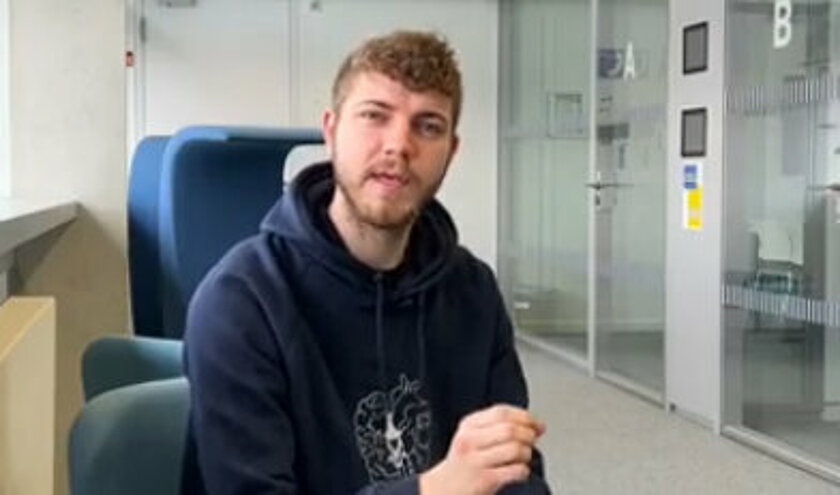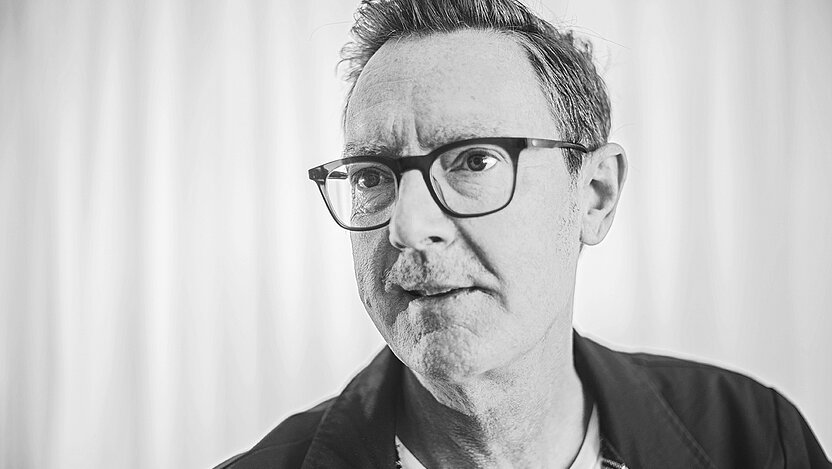Communication & Design for Sustainability (MA)
The master's degree programme Communication and Design for Sustainability uniquely combines a highly topical mindset with critical theory and practical application. The programme focuses on the question of how attractive sustainable lifestyles can be developed and communicated.
Students should be able to design transformation and transition processes transparently and to plan and communicate them with the involvement of various stakeholders. To this end, specialized technical or conceptual methods are developed to solve strategic problems in order to transform societal and economic conditions technically, socially and creatively.
In this Master, students learn to develop sustainable transformations through communication and design for companies and institutions, for society, politics and economy.
Admission and application
Admission requirements
- Completed university studies with at least 210 ECTS (University degree does not reach 210 ECTS)
- Grade 2,5 or better
- For the Master's program, proof of examination results in the fields of communication, corporate social responsibility, communication science or design totaling at least 30 ECTS must be submitted from previous university studies at a state or state-recognized German or foreign university.
- English language skills on level B2
- For international applicants: German A1
(The language certificate must be submitted at the latest at the time of enrolment. Upon request, the certificate can be submitted later during the first semester). - At least 30 ECTS from the fields of communication, CSR, design or media.
- Optional: Voluntary entrance test to improve final grade
- The programme is approval-free
Application period
Winter semester: 02.05. – 31.08.
For non-EU applicants:
Winter semester: 02.05. – 15.07.
The programme is only offered in the winter semester.
Application portal
Please use the application portal by the above deadlines to apply to this programme.
Questions about admission and application
How do I apply for the programme?
To apply for this master programme you have to register at the online portal on our website. Unfortunately it is not possible to check the content without an application. Detailed application deadlines can be found on this page in the "Admission and application" section.
The following documents must be submitted by the application deadline at the latest:
- Application form
- Curriculum vitae
- A copy of your high school certificate
- A copy of your bachelor degree with at least 210 ECTS Points and a final mark 2,5 or better. It is necessary that you finish your bachelor before ends the application deadline.
- Proof of English knowledge level B2
- Proof of German knowledge level A1. This certificate we will need at latest by our enrollment process. Upon application, proof of level A1 can be submitted later during the first semester.
- All applicants who have not obtained their Bachelor's degree in Germany must upload their certificates via the uni-assist online portal for further checks. Detailed information about the necessary documents you find at the website www.uni-assist.de
Further information on application and admission for International degree seeking students can be found on the following page: Application for international students
What qualification is required?
In order to be admitted, you must have a degree from a university or university of applied sciences with a minimum of 210 ECTS credits (or an equivalent degree).
If you completed your degree outside of the German school system, please take note of the additional rules for applying with an international degree.
I did not earn the required 210 ECTS credits with my degree. What can I do?
The following text provides an overview of the key points from the Enrollment Statutes. In case of deviations, the text of the enrollment statutes (opens in a new window) is binding.
In the case of a Bachelor's degree with only 180 ECTS credits, the existing qualification gap of 30 ECTS credits must be filled by proving or successfully completing one of the following prior achievements:
- Co-authorship of a research publication in English (research paper).
- At least 6 months of verifiable full-time professional experience after obtaining the bachelor's degree in an occupation relevant to the study content of the degree program (evidence by employment contract and/or employment references)
- Successful completion of an admission examination in the form of a written scientific paper in English.
Deadline for submission of the paper:
Winter semester: 31.8.
Summer semester: 4.3.
You apply for participation at the latest 1 month before the deadline in English and solely by e-mail to the head of the respective degree programme.
Please contact the head of the degree programme for the provision of such proof:
- Proof of additional subjects taken amounting to 30 ECTS from a previous degree programme
What average mark is required?
The average mark on your transcript from a university or university of applied sciences must be 2.5 or better.
If you completed your degree outside of the German school system, please take note of the additional rules for applying with an international degree.
How can I improve my bachelor grade? (Admission test: TM-WISO)
It is optionally possible to take a voluntary entrance test (TM-WISO) to improve the bachelor's degree grade.
In principle, the test can be taken as long as you wish before you start your studies or complete your bachelor's degree. It is valid for all future applications. At HNU, you will achieve the following with the test: If you belong to the best 60%, your Bachelor final grade will be improved by 0.3, if you belong to the best 50% by 0.5 and if you belong to the best 40% even by 0.7.
For more information about the test, visit the Institute's site:
Institute for Test and Talent Research (opens in a new window)
The registration for the test "TM-WISO" is possible on the following page of the institute:
Registration for TM-WISO (opens in a new window)
What language skills are required?
For the degree programme offered in English, you must submit verification of level B2 English language skills with your application. The following are considered suitable verification:
- corresponding results from a recognised language test (e.g. TOEFL, IELTS)
- evidence of adequate language skills from school or university transcripts
- completion of a degree programme that was verifiably taught entirely in English
- evidence that English is your native language
Non-native speakers of German are also required to provide evidence of German language skills at level A1 when enrolling.
About the programme
Contents of the programme
The challenges regarding a sustainable transformation make an inter- and transdisciplinary approach of economics, design science, communication and social sciences reasonable and necessary: These include
- Design thinking,
- storytelling,
- stakeholder management,
- Moderation of transformation processes,
- Research through Design,
- lifestyle research.
Design is understood as a methodology for transforming social and economic conditions technically, socially and creatively.
The degree programme "Communications and Design for Sustainability" focuses on the question of how attractive sustainable lifestyles can be developed and communicated. The programme combines theory with design and communication practice: most modules are linked to projects, laboratories and case studies.
Qualification goals of the degree programme
The Communications and Design for Sustainability degree programme focuses on the question of how attractive sustainable lifestyles can be developed and communicated. The programme combines theory with design and communication practice: most modules are linked to projects, labs and case studies.
Students should be able to design transformation and transition processes transparently and to plan and communicate with the involvement of all stakeholders. For this purpose, specialized technical or conceptual methods are developed to solve strategic problems in order to transform societal and economic conditions technically, socially and creatively. For all transformations it is necessary to understand the consequences of one's own actions and to develop a consequential awareness.
Structure of the programme
In the first semester, the degree programme includes fundamentals of sustainable economic models, applied social research (target groups, lifestyles), sustainability communication, design science and media production. (30 ECTS)
The second semester is focused on analysis and conceptualization: qualitative and quantitative research in design and communication are complemented by best practices and case studies of sustainable and transformative projects worldwide. Students also design their research projects for the third semester. (30 ECTS)
In the third semester, students develop the strategic measures for a design project and a communication project. The master's thesis and seminar conclude the programme. (30 ECTS)
Special features
The big topic of the next few years will be social and economic change under the guiding principle of sustainability.
- How will it be conceived, designed, communicated and implemented?
- What do future scenarios look like?
- How and with which competencies and partners can these be transferred into reality?
These questions require a transdisciplinary and intercultural approach from economics, design science and design practice, communication and social sciences.
Career perspectives
The degree programme qualifies students to design and communicate sustainable innovations and transformation processes. Graduates acquire competencies for implementing sustainable design, action, management and communication as fundamental factors of future-oriented organizations. These include:
- Political and social communication
- Urban planning, urban development, territorial planning
- CSR; corporate communications; branding, marketing, product development
- Design and communication agencies (communication, product development and design; service design, social design, sustainable design, transformation design)
- Cultural institutions, associations, NGOs
Language of instruction
The language of instruction in this degree programme is English.
Contributions and fees
There are no tuition fees. A semester fee (administrative fees and solidarity fee) is charged per semester. Information on this can be found on the page "HNU - Fees and Re-registration (opens in a new window)".


![[Translate to English:]](/fileadmin/_processed_/4/b/csm_judith_mayer_b54f19c2ca.jpg)










